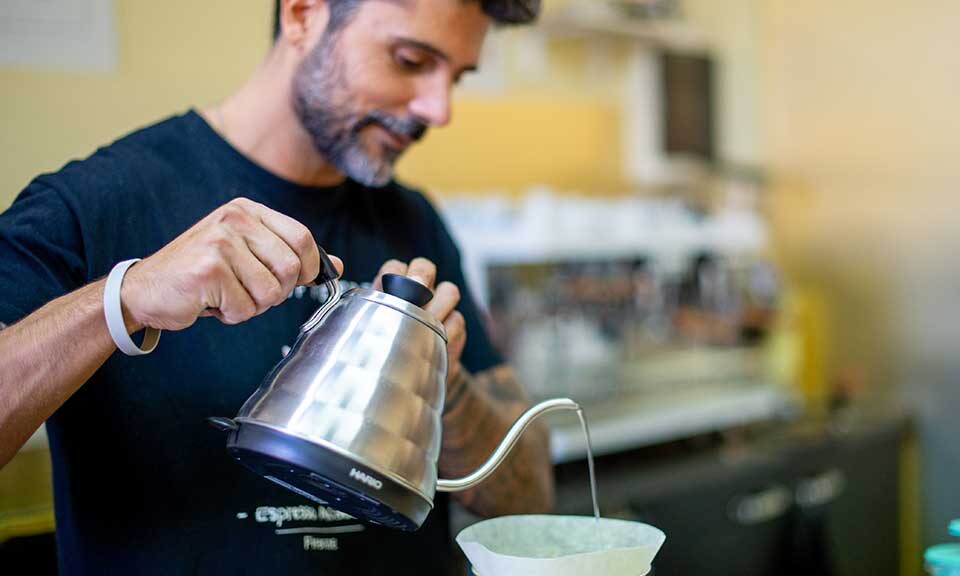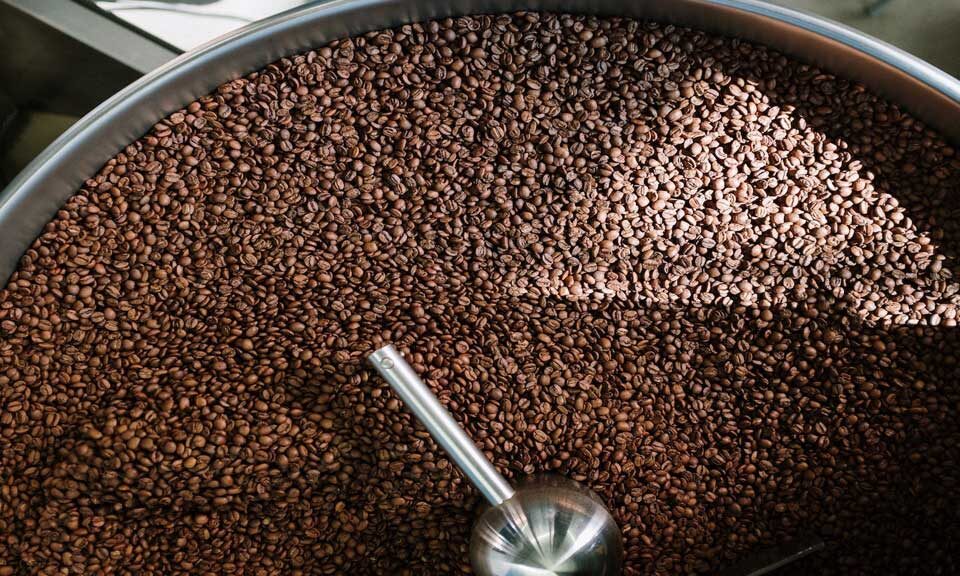
How to prepare the perfect espresso
23 September 2024How to Become a Successful Barista
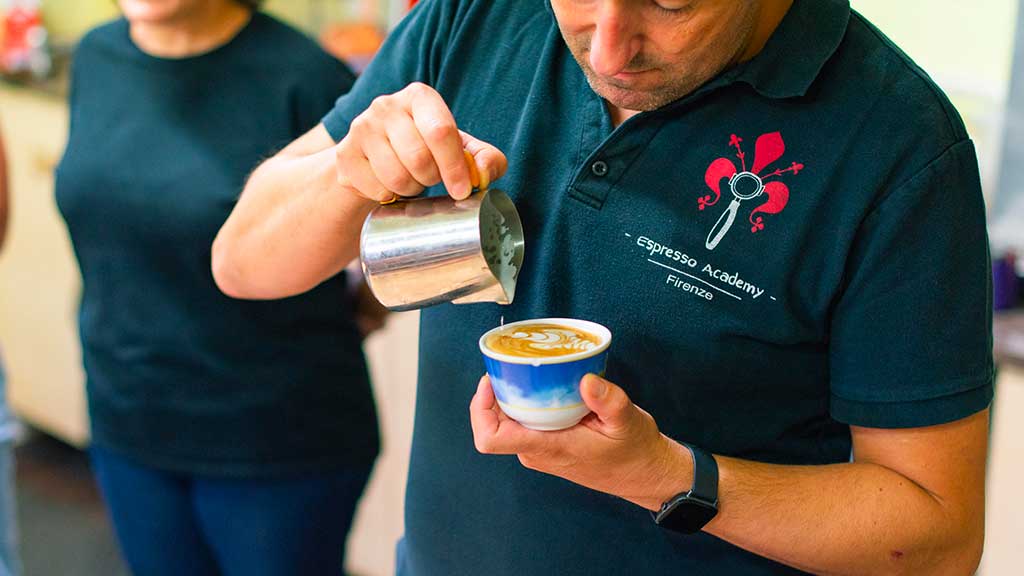
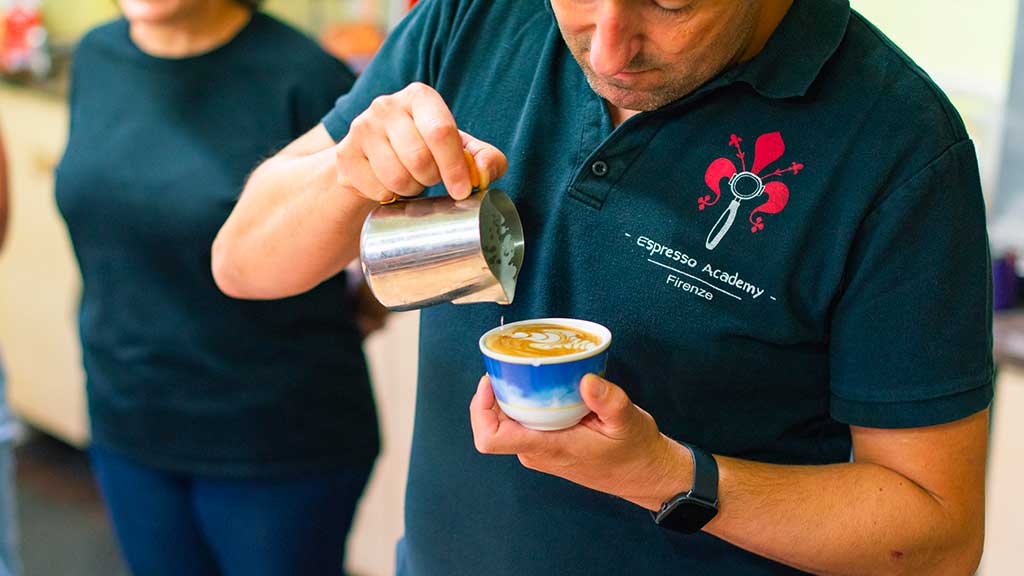
The 7 Methods That Transform a Simple Barista into a Successful Barista
The world of coffee is a fascinating universe made up of aromas, flavors, and traditions that intertwine in a complex dance, capable of awakening the senses and creating connections. However, beyond the technical aspects like grinding, extraction, and preparation, there is a fundamental element that often goes unnoticed, but can turn a simple cup of coffee into a memorable experience: the barista.
1- Customer Attention, Welcoming
The role of the barista goes far beyond simply executing a series of technical operations. Certainly, a deep understanding of extraction techniques and the skill to get the most out of the available tools are essential. But what truly distinguishes an excellent barista is the ability to combine these technical skills with a strong human component. Every cup of coffee they prepare is not just a product but an opportunity to create a special moment for the customer.
The interpersonal skills of the barista are fundamental in this process. A welcoming smile, a kind word, and the ability to listen and understand the customer’s preferences are elements that help make every person feel welcomed and valued. This first contact, the welcoming, is often what leaves a lasting impression. It’s the way the barista addresses the customer, the courtesy with which they invite them to explore the menu or share their preferences, that can make the difference between simple service and an experience the customer will remember fondly.
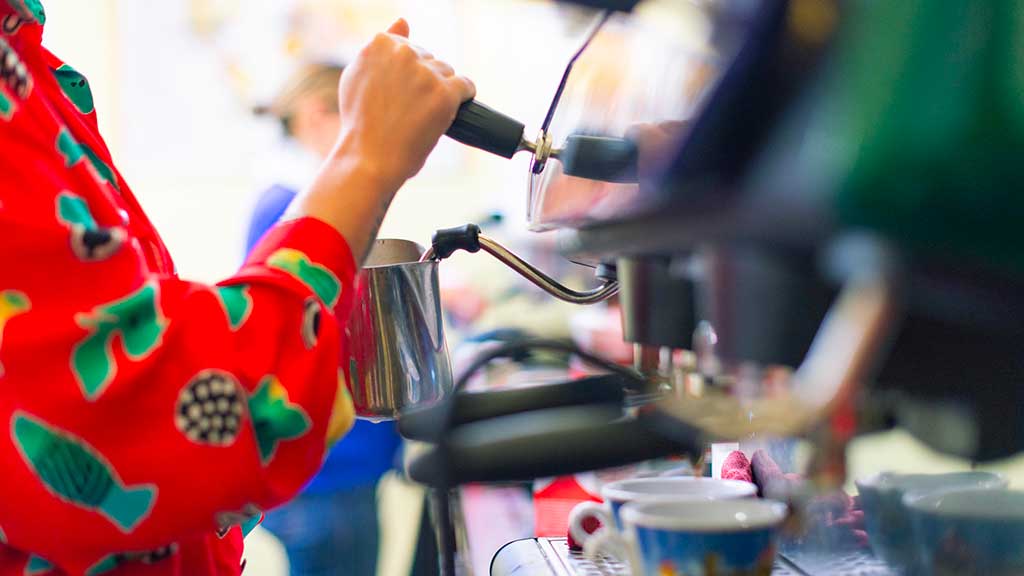
Example: “Attention to detail” An attentive barista knows that every detail counts: the temperature of the coffee, the creaminess of the foam, the presentation of the cup, but also the atmosphere created around the preparation and service. And this is where the art of welcoming comes into play. A well-kept environment, a genuine smile, and the ability to anticipate the customer’s desires transform the simple act of having a coffee into a daily ritual that can brighten the day.
2 – The Art of Communication
A modern barista is not only a coffee expert but also an excellent communicator. The first interaction with the customer is crucial, as it can set the tone for the entire experience. A warm smile, a welcoming greeting, and the ability to listen carefully to the customer’s preferences are simple yet fundamental gestures that create a comfortable environment and make the customer feel appreciated and at ease. This initial human contact is essential for building a relationship of trust, a key element for a positive experience.
Example: Cultivate interaction with the customer Imagine a customer entering the café without a clear idea of what they want. A professional barista, thanks to their training and acquired skills, knows how to ask the right questions to understand the customer’s tastes and preferences. This process isn’t just about suggesting a drink, but can also include telling a fascinating story related to the recommended coffee, perhaps explaining the origins of the beans or the unique aspects of the extraction method. This type of interaction not only helps the customer make an informed choice but also enriches their overall experience, turning a simple coffee break into a moment of discovery and pleasure.
3 – Creating a Personalized Experience
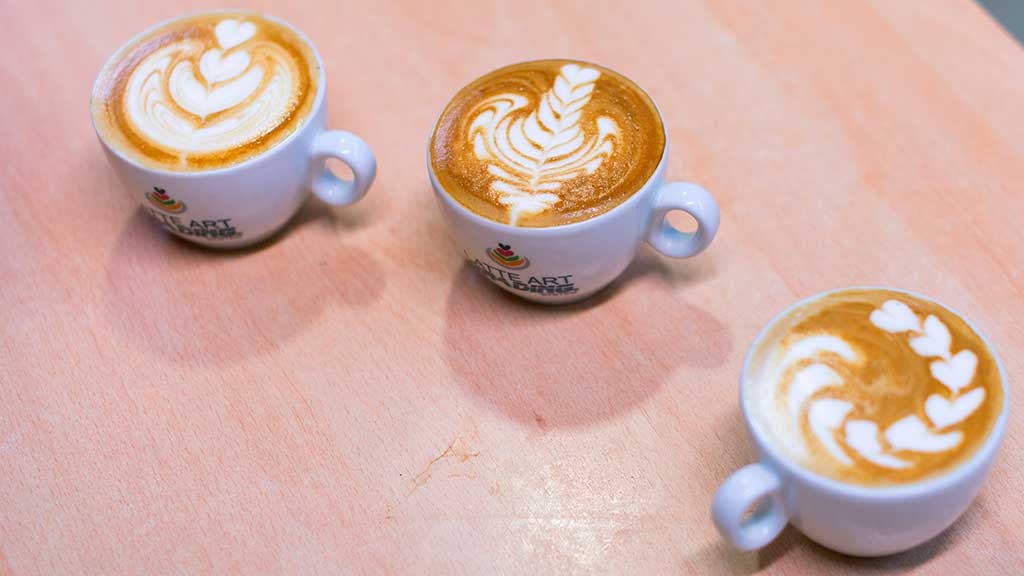
Every customer is unique, and so should be their coffee experience. A barista who takes the time to know and remember the preferences of regular customers, or who customizes each order with a special touch, demonstrates an attention to detail that goes beyond simply preparing the beverage. This ability to create a personal connection with the clientele not only fosters customer loyalty but also turns customers into true ambassadors of the café, eager to recommend it to friends and family.
Example: Every customer is unique Consider a regular customer who walks into the café. A barista who remembers their favorite order or suggests a variation based on a new coffee that has just arrived demonstrates particular attentiveness. This type of interaction not only makes the customer feel special but also offers them the opportunity to explore new flavors in a familiar setting. Personalizing the experience helps create a positive and unique memory for the customer, who will feel not only satisfied but also valued and understood.
4 – The Importance of Training and Product Knowledge
To achieve this level of excellence, it is essential that the barista has solid training and a deep knowledge of coffee. Passion for coffee must be continually nurtured through ongoing learning and staying updated on the latest techniques and trends in the industry. Attending certified coffee courses, such as those offered by Espresso Academy, is an excellent way to acquire advanced skills and keep up with the evolving world of coffee. These courses not only provide in-depth technical training but also help develop those interpersonal skills that are crucial for creating a memorable customer experience.
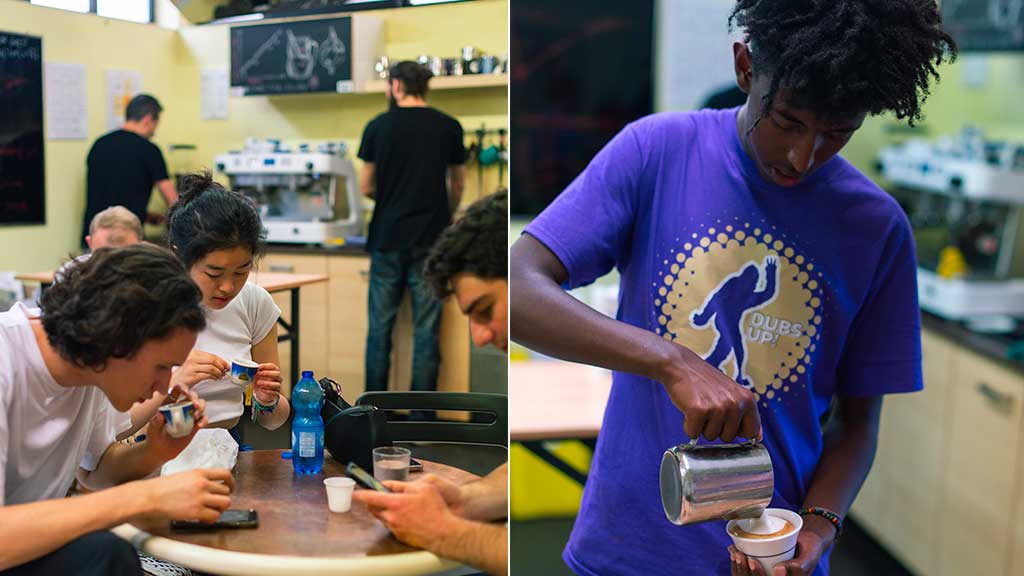
5 – The Presentation of the Product
Visual appeal is important, and this is certainly true in the world of coffee. The presentation of beverages, whether it’s the perfect crema on an espresso or the decoration on a cappuccino, is an aspect that a barista must pay close attention to. A well-presented coffee not only pleases the eye but also communicates the passion, skill, and care with which it was prepared. The quality of the coffee is undoubtedly fundamental, but a refined presentation can elevate the experience to a higher level, turning every cup into a special moment.
Example: A decoration enhances the perceived quality of service The technique of latte art has become a significant phenomenon in the coffee world. A cappuccino decorated with a perfect heart, leaf, or tulip design is not only a delight for the palate but also for the eyes. This attention to detail transforms a simple cappuccino into a small work of art, capable of leaving a lasting impression on the customer.
To master the technique of latte art, specific training is essential, which can be obtained by attending dedicated courses, such as those offered by Espresso Academy. These courses not only teach the basic techniques but also how to elevate your skills to advanced levels, allowing baristas to offer a product that is impeccable in every respect.
6- Handling Difficult Situations
Being a barista 2.0 is not just about making great coffee but also about knowing how to handle difficult situations with calmness and professionalism. Whether it’s a wrong order, an impatient customer, or a technical problem, the ability to stay calm and resolve issues gracefully is crucial. A well-prepared barista can turn a potentially negative situation into an opportunity to demonstrate their value and attention to the customer.
Example: Turn an unsatisfied customer into a loyal one Imagine a customer receives a coffee different from what they ordered. A professional barista knows how to handle the situation by sincerely apologizing, offering a quick replacement, and perhaps adding a small extra, like a cookie or a complimentary drink, to resolve the issue with a smile.
This ability to manage difficulties comes not only from experience but also from targeted training. The training courses at Espresso Academy teach not only coffee preparation techniques but also how to manage customer relationships and successfully handle stressful situations.
7- The Barista as an Educator
Many customers are curious to learn more about the coffee they’re drinking, and a barista who shares their knowledge greatly enriches the customer’s experience. Explaining the origins of the coffee, the extraction techniques, or the importance of grinding not only brings the customer closer to the world of coffee but also educates them, turning a simple coffee break into an opportunity for learning and deeper appreciation.

Example: Storytelling that makes the experience unique While preparing a filter coffee, a barista might explain to the customer the origin of the beans, the chosen extraction method, and how these variables influence the final taste. This kind of educational interaction can transform a simple visit to a café into a rich and memorable experience.
To be not just a coffee maker, but also an educator for the customer, it’s essential to have a deep and up-to-date knowledge of the industry. Barista training courses, such as those available at Espresso Academy, provide the necessary preparation to become not only a competent barista but also a true coffee ambassador, capable of sharing with passion and expertise all the nuances of this fascinating world.
The Role of the Barista
In conclusion, the role of a successful barista goes far beyond simply preparing a cup of coffee. It is a profession that requires a combination of technical skills, communication abilities, and attention to detail. From impeccable product presentation to managing difficult situations, and even playing an educational role with customers, every aspect contributes to creating a unique and memorable experience. Continuous training is essential to excel in this job, allowing baristas to refine their skills and stay updated on the latest trends and techniques.
If you wish to take your skills to the next level and turn your passion for coffee into an art, we invite you to explore the training courses at Espresso Academy. With a wide range of certified courses, you can acquire the knowledge and skills needed to become a successful barista and offer your customers an unforgettable experience. Don’t miss the opportunity to perfect your craft and make a difference in the world of coffee.


